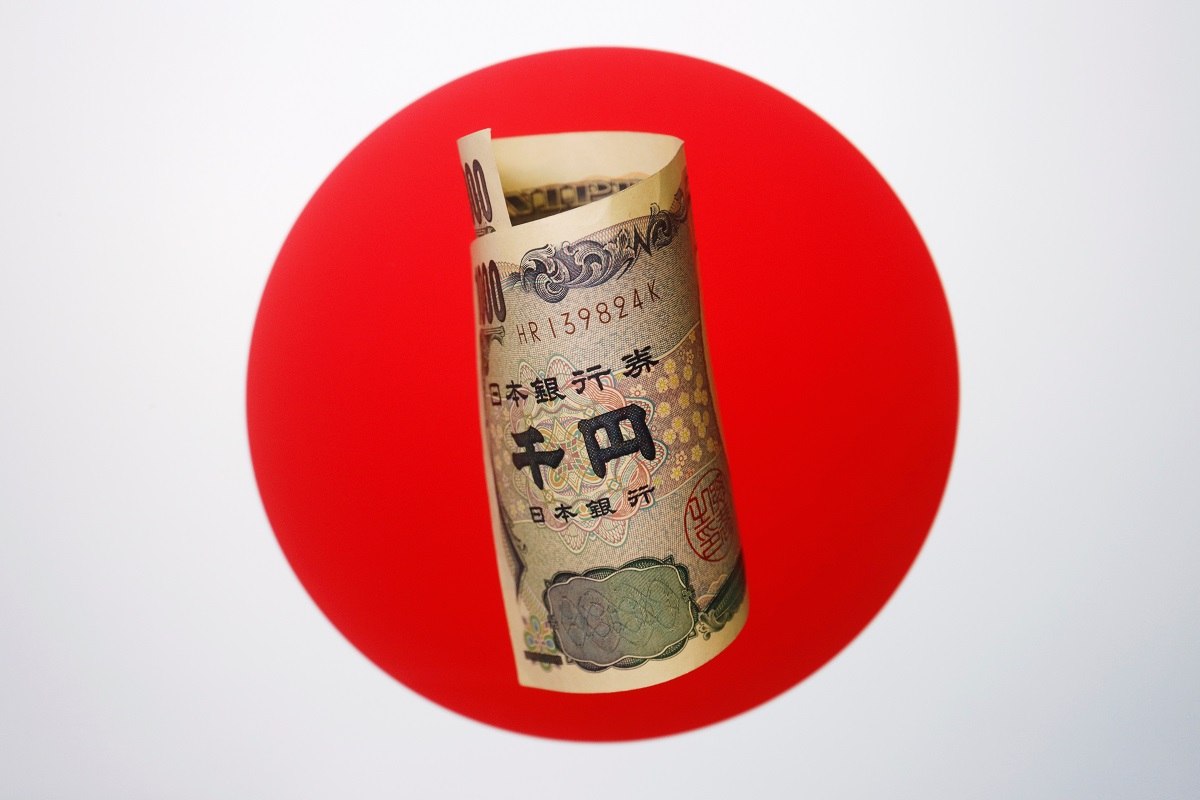
A banknote of Japanese yen is seen in this illustration picture taken June 15, 2022.
Tokyo (Jiji Press)—The yen’s weakening is having varying impacts on Japanese companies’ earnings depending on their size, according to estimates by Mizuho Research & Technologies Ltd.
While a weaker yen is seen pushing up fiscal 2024 ordinary profits by 1.9 pct at large companies with capital of ¥1 billion or more, it is expected to have a negative impact of 1.3 pct for small companies with capital of 10 million to ¥100 million , the estimates showed.
The disparity arises apparently from the inability of small companies to offset rising import costs with their limited-scale exports and direct investments abroad that may benefit from the weaker yen. The research firm said it believes that the yen’s weakening can be a factor behind a widening of profit gaps between large and small enterprises, noting that many workers at small companies may see their incomes grow at a sluggish pace and face difficulty increasing their consumption as a result.
The estimates were compiled based on the assumption that the average exchange rate for fiscal 2024 would stand at ¥151.50 to the dollar, with the Japanese currency weakening by 5.2 pct from the previous year.
While the effect of the yen’s weakening on companies of all sizes is estimated to be marginally positive, at 0.8 pct, the impacts would be negative for midsize companies with capital ranging from 100 million to ¥1 billion and small firms.
Of the 27 industries analyzed, the weaker yen is projected to have a positive impact on large companies of 14 sectors, mainly manufacturers, while small firms of only four industries, including those in general machinery, transportation and postal services sectors, are expected to enjoy benefits.
The research firm said that it is undesirable from the perspective of medium- to long-term economic growth if cost increases due to the yen’s excessive depreciation result in the elimination of companies that could have survived otherwise. It stressed the need to address such a situation through responses by the Bank of Japan and support from the government.
Top Articles in Business
-

Prudential Life Insurance Plans to Fully Compensate for Damages Caused by Fraudulent Actions Without Waiting for Third-Party Committee Review
-

Narita Airport, Startup in Japan Demonstrate Machine to Compress Clothes for Tourists to Prevent People from Abandoning Suitcases
-

Japan, U.S. Name 3 Inaugural Investment Projects; Reached Agreement After Considerable Difficulty
-

Toyota Motor Group Firm to Sell Clean Energy Greenhouses for Strawberries
-

SoftBank Launches AI Service for Call Centers That Converts Harsh Customer Voices into Softer Voices
JN ACCESS RANKING
-

Japan PM Takaichi’s Cabinet Resigns en Masse
-

Japan Institute to Use Domestic Commercial Optical Lattice Clock to Set Japan Standard Time
-

Israeli Ambassador to Japan Speaks about Japan’s Role in the Reconstruction of Gaza
-

Man Infected with Measles Reportedly Dined at Restaurant in Tokyo Station
-

Videos Plagiarized, Reposted with False Subtitles Claiming ‘Ryukyu Belongs to China’; Anti-China False Information Also Posted in Japan





















